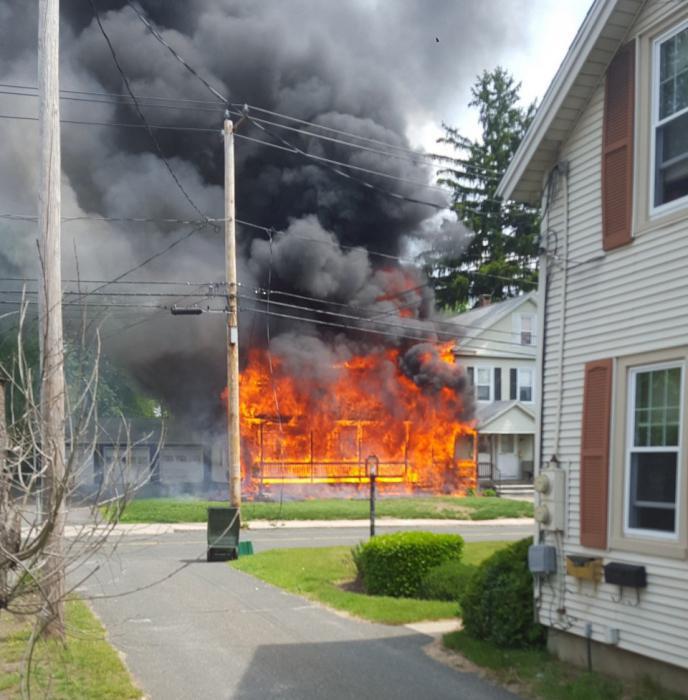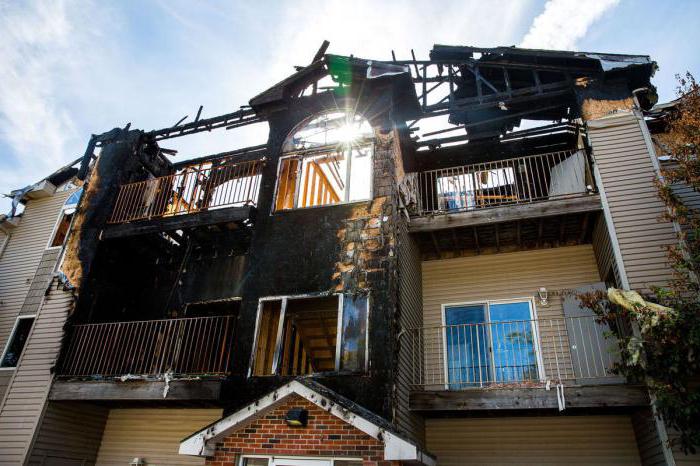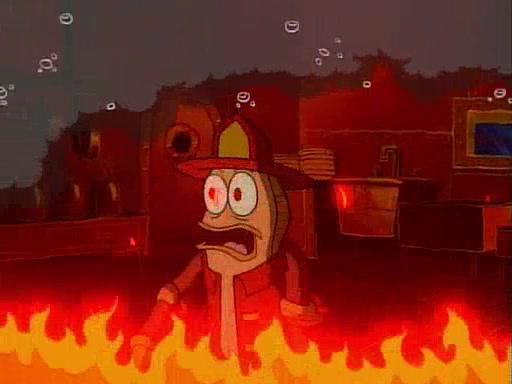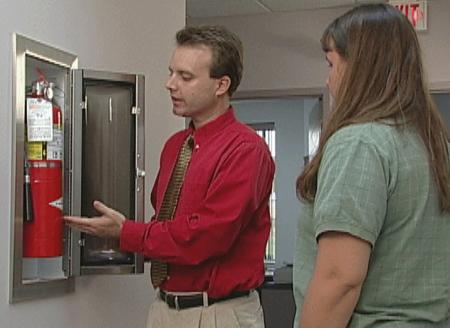Careless handling of fire - causes of fires
Unconditional leader in the list of reasons whythere are domestic, industrial or forest fires, there has been and remains careless handling of fire. Examples of frivolous behavior of this kind meet with frightening regularity. Due to inaccurate smokers, forests and farm fields are burned out. Ignoring faults in gas columns leads to explosions in residential buildings. The games of children with sources of fire are the cause of death of the children themselves and their families.

Household fires
According to the annually updated statistics of the Ministry of Emergency Situations,The number of fires of this type stably amounts to about 80% of the total number of uncontrolled fires. Careless handling of fire in everyday life is a rather broad concept, including the following:
- Unsafe smoking. It is the consumption of tobacco in strong alcohol intoxication, in a state of illness or severe fatigue, as well as near combustible substances or objects from flammable material. This can be paint, gas cylinders, aerosols, etc.
- Failure to comply with safety rules when breeding fire on a plot near the house, burning grass or dead (for example, in windy weather), burning garbage.
- Drying things over a gas stove, near a fireplace, on a heating stove and electrical appliances, using a hair dryer or a heat gun.
In addition, an open firefire used to heat frozen pipes, preheating flammable substances on the stove, and cleaning with alcohol-containing or other combustible liquids of clothing.

Operation of faulty furnaces and electrical appliances
Careless handling of fire is often associated withnegligent attitude to damage in heating appliances. Similar in most cases is observed in socially unfavorable environment, as well as in settlements that do not have gas heating. So, among the reasons leading to a fire, fire department employees are called:
- Operation of furnaces with cracked masonry or defective chimney.
- Installation of self-made heating devices that do not meet the proper technical parameters.
- Uncontrolled burning furnace.
- Kindling it with combustible substances (gasoline, diesel fuel and so on).
The causes of fires in residential buildings are often hidden inuse of powerful electric heaters. As a rule, similar devices are connected to the electrical network of the old model. The wires of small cross section do not withstand the load and melt, resulting in a short circuit. And, as a result, there is a fire.

Fires for children's prank
One of the eternal problems in the field of fire safety are childish pranks and careless handling of fire, examples of which are quite extensive:
- Games with matches and flammable substances. Quite often, the thirst for knowledge causes kids to carry out all sorts of experiments with little-known objects and adaptations, which can lead to irreparable consequences.
- Use of electric heaters, gas andelectric cookers. Often, children left without supervision of parents in a room where readily available sources of fire, include them in their games. The result can be a flashed curtain, set fire to a notebook, an exploded can of condensed milk, and so on.
- Ignition of dry foliage and poplar fluff. They are, perhaps, one of the most popular seasonal entertainment for children. The presence in the baby's pocket of matches or lighters during the poplar dropping of their seeds can lead to a fire in an apartment building parked in cars, benches and other disastrous consequences. Ignition of grass in rural areas may well cause a fire with the death of people.
Fires in production
The most common fires in workshops and factoriesoccur because of total non-compliance with labor safety rules. This happens, as a rule, because of the pseudo-economy of time. Responsible for fire safety master does not want to spend time for proper instruction, and the employee agrees with him. To explicit violations of fire safety rules include:
- An old posting condition.
- The lack of proper response to open fires.
- Malfunctions in electrical equipment.
- Absence of adapters for voltage to imported devices.
- Leaks of explosive gases and media.
- Violation of the rules for electric and gas welding, as well as metal cutting.
- Wrong organization of the workspace and much more.
Most of the fires in production occur due to violation of the rules for the operation of electrical appliances. Careless handling of fire is the second factor in its prevalence.

Fires at the gas station
The combustion of petroleum vapors, as a rule,accompanied by explosions and a bright flash. Despite the fact that diesel fuel burns slightly worse than gasoline, its destructive power by its characteristics is by no means less. The main cause of accidents at gas stations is a violation of safety rules, which is a careless handling of fire. So, in conditions of volatile vapors dispersed in the air, ignition can cause:
- Open fire (match, cigarette lighter, cigarette butt, broken incandescent lamp).
- A flashing spark (repair work near the storage facility, emissions from the exhaust pipe, the use of faulty electrical equipment, etc.).
However, it is worth remembering that the first stageThe absolute majority of fires at gas stations is the leakage of oil products, which occurs due to depressurization of tanks for both natural causes and human fault.
Forest fires
According to the MOE, the root cause of this typeignition is almost always a person. Forest fires (especially peat) are always a colossal disaster: huge areas of a wood massif are destroyed, unique ecosystems, animals, birds and insects perish. Together with the smoke, carbon dioxide and carbon monoxide are released into the atmosphere, as well as nitrogen oxide. In the opinion of the absolute majority of specialists, in terms of the amount of harmful combustion products, a large forest fire may well compete with the activities of several large industrial enterprises.
Coniferous carpet with an admixture of dry,foliage lining the forest, has amazing flammability. It ignites with almost the same ease as gunpowder. The basis for the cause of forest fires since the times of finding cigarettes popularity is the thrown cigarette butt. However, quite often for a fire, a simple bottle glass is sufficient, which is able to focus the sunbeam, as the lens does.

Causes of fire in the home
Fires due to careless handling of firealways associated with the frivolity and absent-mindedness of a person. Obviously, it will never be possible to completely avoid such incidents. However, it is quite possible to reduce the likelihood of a fire in everyday life. All that is needed is a simple consciousness, as well as a clear understanding of how much depends on each individual person in this matter. In addition to the already mentioned above ignition factors, the cause of a fire in everyday life can be:
- Left unattended iron and other electrical appliances connected to the network.
- Ignoring safety rules when using firecrackers, Bengal lights, garlands, etc., devices of festive themes.
- Use of candles near curtains and other easily flammable decor elements.
- Storage in the house of paints, varnishes (especially in a well-heated room, especially in the immediate vicinity of the heat source).
- Careless use of gasoline and acetone for cleaning tissues.

The consequences of fires and their statistics
All kinds of fires in the first place entaildeath or injury of people. In addition, the destruction from them causes significant damage to both the affected and the economy of the country. The annual damage is estimated in tens and even hundreds of millions of dollars. Analytical data categorically testify that the number of fires worldwide is steadily growing and entails great material losses and human casualties.
The statistics for today are as follows: more than half of the fires occur in residential buildings (55%), about 10% - in production, the incidence of fire in the warehouse is about 30%. As for the level of material damage, the greatest damage is accounted for by warehouses and storage facilities (about 45%). In residential buildings, it is 30%. And 25% - in all others. The greatest number of people die in domestic fires (80%).

Prevention
So, in order to prevent a fire, you should remember a few simple rules:
- Do not leave open fire sources (heating devices, stoves, fireplaces, bonfires, burning braziers, etc.) without supervision.
- The candle should be installed on a dense and absolutely incombustible base, the width of which exceeds the length of the candle.
- Smoking in the house follows only one, specially selected for this place, equipping it with a glass or metal ashtray and clearing everything that can easily ignite.
- In no event can you pour ashtray into the trash immediately after smoking.
- If possible, a fire safety system should be installed in the house.
However, the most effective prevention of fires,the cause of which is the careless handling of fire, is a clear understanding of the danger posed by an uncontrolled flame. One unsuccessfully thrown cigarette butt, which fell on a balcony neighbor during the sowing of poplar fluff, can ruin several lives.
</ p>>







